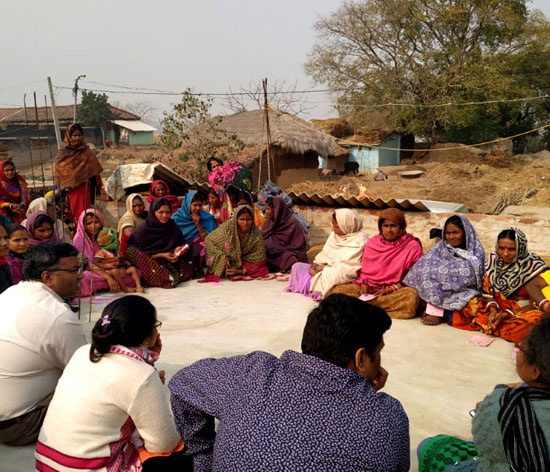About the theme
Financial inclusion (FI) is the pursuit of making financial services accessible at affordable costs and it strives to address constraints that exclude people from participating in the financial sector. Financial inclusion plays a pivotal role in reducing poverty and is a recognised enabler in achieving at least seven of the UN’s Sustainable Development Goals (SDGs).
In India, the Pradhan Mantri Jan Dhan Yojana (PMJDY) has made financial services such as bank accounts, remittances, credit, insurance, and pensions accessible to large sections of society. The government has almost solved the last mile problem for the delivery of financial services through the JAM (Jan Dhan-Aadhaar-Mobile) trinity.
Despite advances made by the PMJDY, nearly 19% of the population still remains unbanked in India. A large number of bank accounts remain inactive which prevents account holders from having an active presence in the formal economy. When coupled with the social barriers in front of the financially underserved population, it prevents people from getting an equal opportunity to develop and grow. Therefore, aiding the financial inclusion agenda at the grass-roots level will be critical for the holistic development of our nation.
The core objectives of financial inclusion initiatives at Tata Trusts are:
a) to make formal sector credit accessible to the beneficiaries in a fair and transparent way
b) promoting community-led models for insuring against unforeseen risks
c) ensuring financial awareness and education of the communities.
Rural communities need relevant and affordable financial products and services to meet their day-to-day needs like livelihood generation (agriculture, fisheries, livestock rearing, etc.), education, nutrition and healthcare. The Tata Trusts endeavour to address their needs by:
— Identifying various community-based institutions like SHGs, Federations, Cooperatives, FPOs etc. that need financial products and services
— Assessing the requirements for credit, insurance and other financial products among the Trusts’ beneficiaries at the community level
— Bringing various stakeholders together to provide the beneficiaries with affordable financial products and services
— Engaging with financial institutions such as banks, NBFCs, MFIs and insurance providers willing to serve the beneficiaries
— Facilitating capacity building for community-driven organisations and improving financial literacy among the beneficiaries
Financial inclusion has the potential to generate a "multiplier effect" on the impact that the Tata Trusts’ interventions can create. It will make their impact sustainable by promoting self-reliance amongst the ‘grant-dependent’ beneficiaries.
Tata Trusts is undertaking the following key programmes for driving financial inclusion.
1) Beneficiary Loans
The FI team helps facilitate loans to the beneficiaries of various Tata Trusts programmes. So far, we have facilitated loans to nearly 10,000 individuals through Rang De, a crowdsourcing platform for micro-credit in partnership with our associate organisation, Collectives for Integrated Livelihood Initiatives (CInI). These loans were provided for integrated livelihood-related needs with a key focus on agriculture. The average ticket size of the loans was in the range of INR 1500 – INR 1.5 lakhs.
Going forward, credit will be facilitated through financial institutions like banks, MFIs or NBFCs or platforms like Rang De to help us cater to any credit requirement of our beneficiaries. Loans will be arranged based on the requirements identified in a region and the ability of the financial institutions to serve them.
2) The Health Mutual Aid Project
We are designing a community-led, technology-driven Mutual Aid Model, wherein the community will collectively meet part of the healthcare expenses, incurred by its member households. We are currently co-creating processes for increased involvement of SHGs and SHG Federations in the model.
Our plan is to initially launch a fixed-benefit pilot product that will cover incidental expenses incurred during hospitalisation. If successful, the robust mutual aid model will be adapted by various at-risk communities that Tata Trusts serve across different geographies. We envision mutual aid to be crucial in promoting risk mitigation and management among underserved communities.
3) Financial Education
We enabled community-driven organisations like SEWA Bharat, Bihar to empower its women through financial education. Financial education enables women and the community at large to gain from financial products and services and enhance their livelihoods.

